Help-desk-information.com is a scam targeting social media users with fake Facebook ‘Important Notifications’. Victims receive messages claiming their social media page is at risk of deletion due to trademark infringement. These messages, appearing to be from credible sources like Facebook, direct users to the scam website.
This site, a phishing platform, prompts users to enter their login details under the guise of resolving the supposed issue. The Help-desk-information.com scam uses fear and urgency to deceive victims into surrendering sensitive information. It has been identified as malicious by cybersecurity tools like VirusTotal and has numerous phishing reports on URLScan.io.

The ‘Case Help Desk Information’ scam is a phishing scam, primarily using fake social media notifications to deceive victims. Unlike common online scams involving purchases or subscriptions, this scam sends alarming messages claiming there’s an issue with the victim’s social media account, such as a trademark infringement, threatening account deletion. These messages, masquerading as official communications from platforms like Facebook, contain links to Help-desk-information.com.
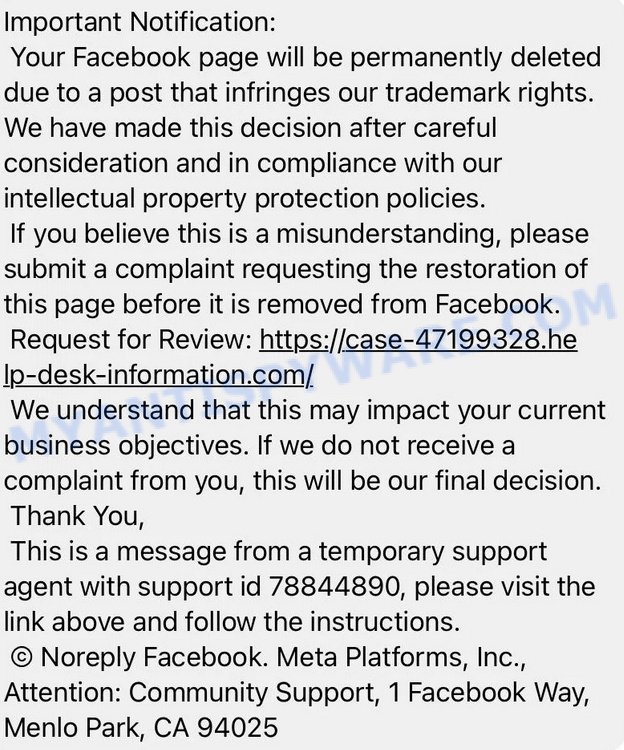
At this site, victims are prompted to enter their login credentials, ostensibly to address the urgent issue highlighted in the notification. The scam’s objective is to steal sensitive information, not to charge for products or enroll in subscriptions.
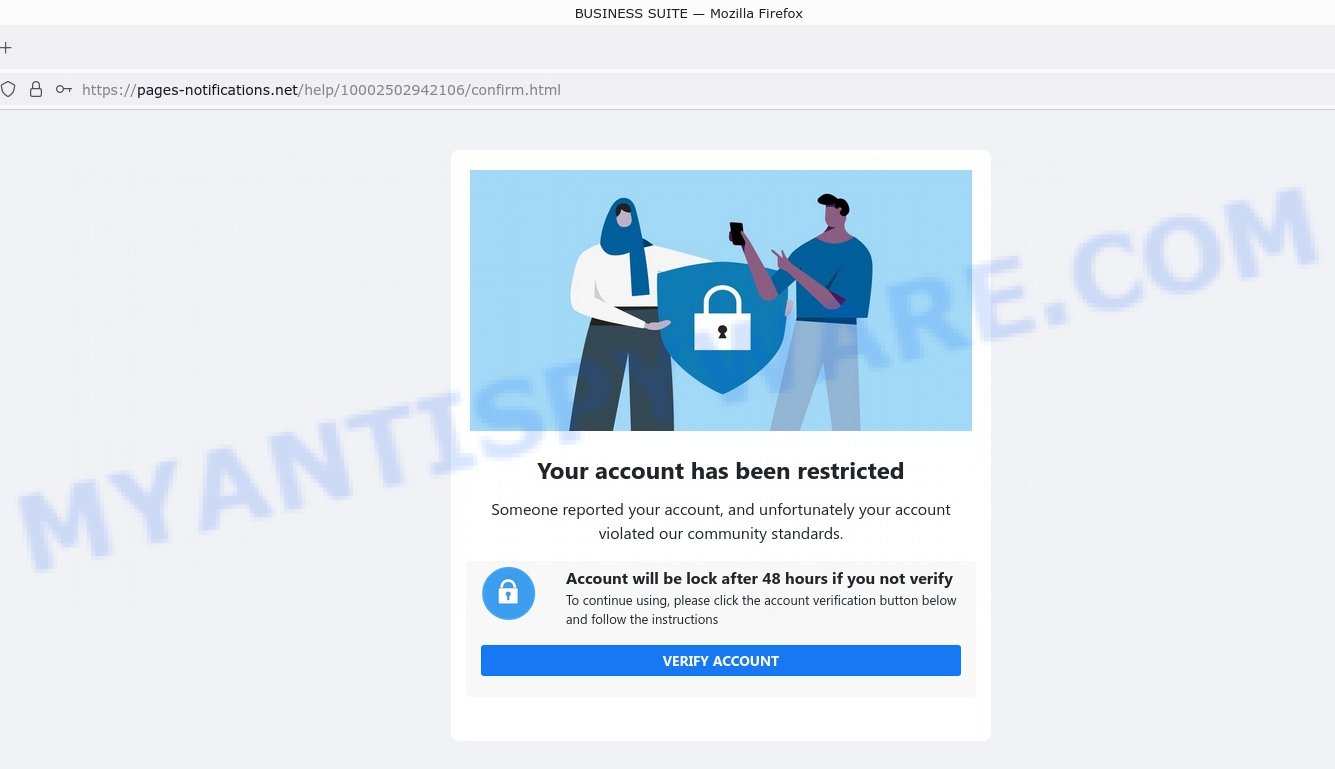
The website itself is elusive, often showing errors when accessed directly, hinting at its creators’ intent to avoid detection. Created in early 2024, Help-desk-information.com conceals its WHOIS contact information, a common practice among fraudulent sites.
VirusTotal flagged “help-desk-information.com” as phishing and malicious:
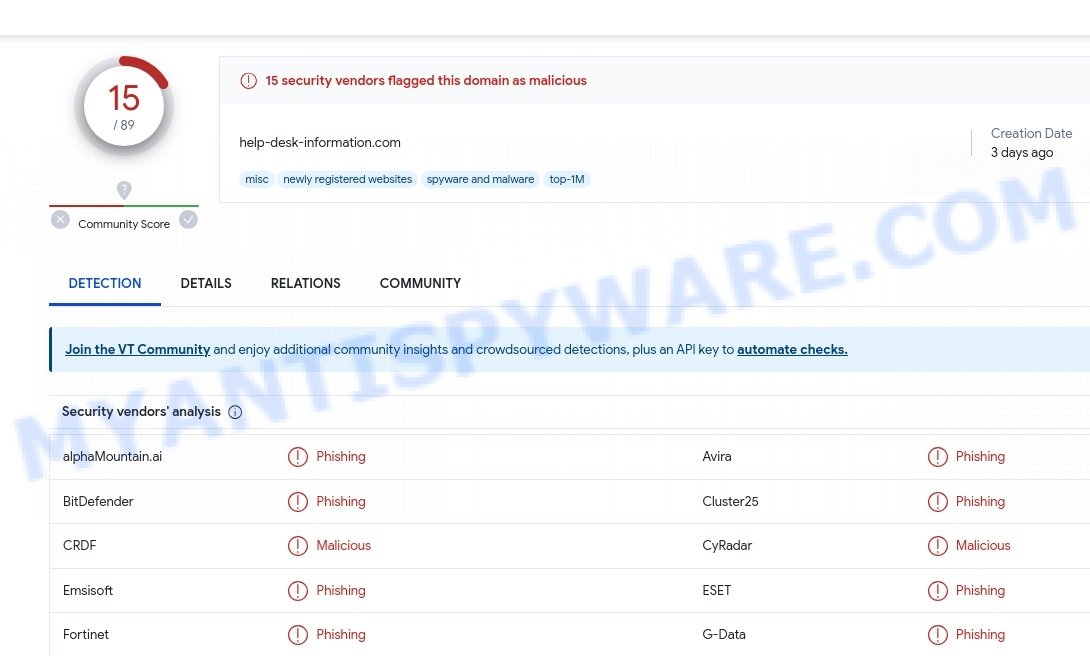
Analysis via platforms like urlscan.io reveals that Help-desk-information.com operates through a series of dynamically generated subdomains, each leading to the same phishing scheme. These subdomains, such as ‘case-46671175.help-desk-information.com’ and ‘case-87461673.help-desk-information.com’, are unique to each phishing attempt, making the scam more difficult to track and shut down. Despite the different subdomain names, all these URLs lead to the same IP addresses and servers, indicating they are part of a coordinated network.
The consistent server information, such as the IP being 185.53.177.50 and the server running on nginx, hosted under the same GeoIP in Germany (AS61969 TEAMINTERNET-AS, DE), reinforces the conclusion that these are not isolated incidents but rather a widespread phishing operation. The use of various subdomains is a tactic to avoid detection by cybersecurity measures and to give each targeted victim a seemingly unique and credible-looking link. This approach allows the scammers to cast a wide net, targeting numerous victims while minimizing the risk of the main domain being flagged and taken down quickly.
Summary Table
| Name | Help Desk Information Phishing Scam |
|---|---|
| Website | Various subdomains of help-desk-information.com |
| Type of Program | Phishing Scam |
| Scam Method | Sends fake social media notifications claiming urgent issues like trademark infringement, directing victims to phishing site. |
| Redirection | Users receive messages through social media, typically from seemingly credible sources. |
| Legitimacy | Completely illegitimate. |
| Whois | Created: 2024-01-15, contact information is hidden. |
| Suspicious Flags |
1. Claims of urgent issues requiring immediate attention. 2. Requests for login credentials on the phishing site. 3. Uses various subdomains to avoid detection. 4. Direct website access often results in an error. 5. WHOIS contact information is hidden. 6. Identified as part of a scam network by urlscan.io. 7. Flagged as a phishing site by VirusTotal. |
| Verdict | Help-desk-information.com and its subdomains are part of a sophisticated phishing scam. Users should avoid interacting with these sites and be cautious of similar schemes. |
Beware of Similar Scams
Scams using emotional manipulation and fake alerts are unfortunately common tactics used by cybercriminals to exploit people’s vulnerabilities and steal money or personal information. The Help-desk-information.com scam is just one example of such schemes. These scams often rely on shock value or sensational claims to get people to click on a link or provide sensitive information. Below are some other examples of similar scams to watch out for.
📧 Facebook Account Recovery Code Email Scam
Victims get an email claiming to be from Facebook Support, stating that they’ve requested a password reset. The email contains a “recovery code” and prompts users to confirm their identity by clicking on a provided link.
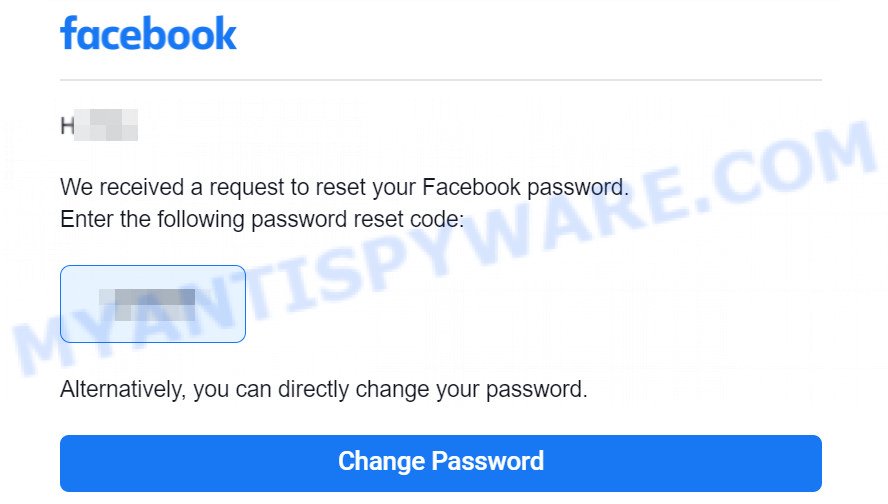
📊 Meta Business Support Scam
Users are targeted with messages that appear to be from “Meta Business Support”, claiming that a user’s page has been disabled due to intellectual property violations. The scammers then prompt users to click on a link to “resolve” the purported violation.
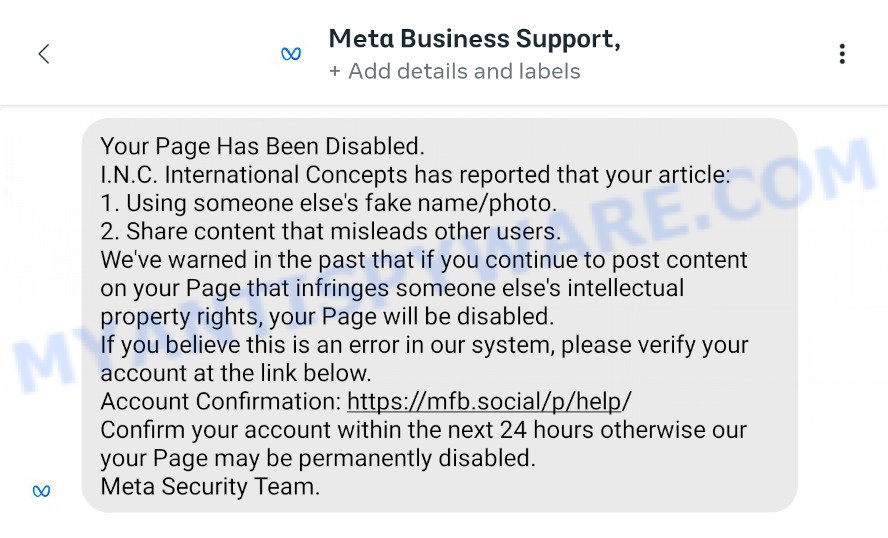
🚫 ‘We Added a Restriction to Your Account’ Scam
This scam alarms users with a notification stating that a restriction has been added to their account due to a breach of community standards. They’re urged to click on a link to lift the restriction.
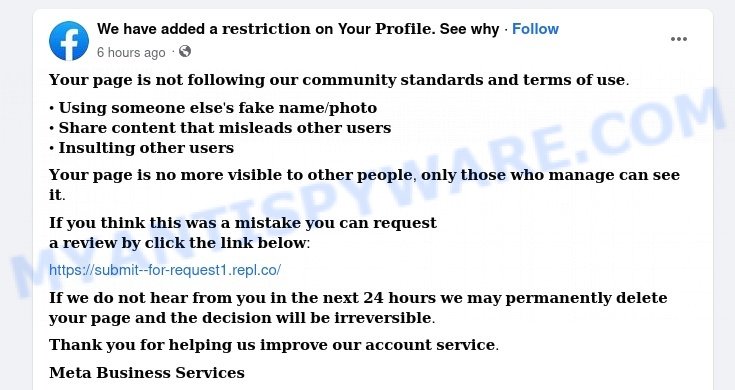
What to Do If Scammed 🚫🔐
If you’ve fallen victim to the Help-desk-information.com phishing scam, don’t panic. Acting quickly is key to protecting yourself and your personal information. Here’s a step-by-step guide on what to do next:
🔐 Change Your Passwords:
Immediately change the passwords for all your online accounts, especially if you entered your credentials on the phishing site. Prioritize accounts linked to financial services, email, and social media. Use strong, unique passwords for each account and consider a reputable password manager.
👀 Monitor Your Accounts:
Closely monitor your online accounts for any unusual activity. This includes your social media accounts, email, and any other service where you might have used the same login information. Be vigilant for signs of unauthorized access or suspicious activity.
🚔 Report the Scam:
Report the phishing attempt to the relevant authorities. This might include your local law enforcement, cybersecurity divisions, or consumer protection agencies. Provide all the details of the scam, including any messages and the link you received.
💻 Secure Your Devices:
If you clicked on the link in the scam message, ensure your devices are secure. Run a thorough antivirus scan to check for malware or spyware. If you’re unsure, consult with a cybersecurity expert to ensure your devices are not compromised.
📘 Educate Yourself:
Learn about common phishing tactics to better protect yourself in the future. Stay informed about the latest online scams and security best practices. Awareness is a key defense against phishing.
📢 Spread the Word:
Inform your friends, family, and network about the Help-desk-information.com scam. Sharing your experience can help others recognize and avoid similar phishing attempts. The more people are aware, the less effective these scams become.
Conclusion
In conclusion, Help-desk-information.com is a phishing scam that targets users through fake urgent notifications, primarily on social media platforms. The scam involves sending alarming messages under the guise of issues like trademark infringement, threatening the deletion of social media accounts. Victims are directed to enter their login credentials on various subdomains of Help-desk-information.com, which then compromises their personal information.
Analysis from online security tools like urlscan.io reveals that this site is part of a broader network of phishing operations, using similar tactics to deceive and harvest data from unsuspecting victims.
To safeguard against such phishing attempts, it’s crucial to be vigilant, scrutinize the authenticity of alarming notifications, and never input personal information on unverified websites. Always exercise caution and be skeptical of urgent requests for personal data online to avoid falling prey to these types of scams.















